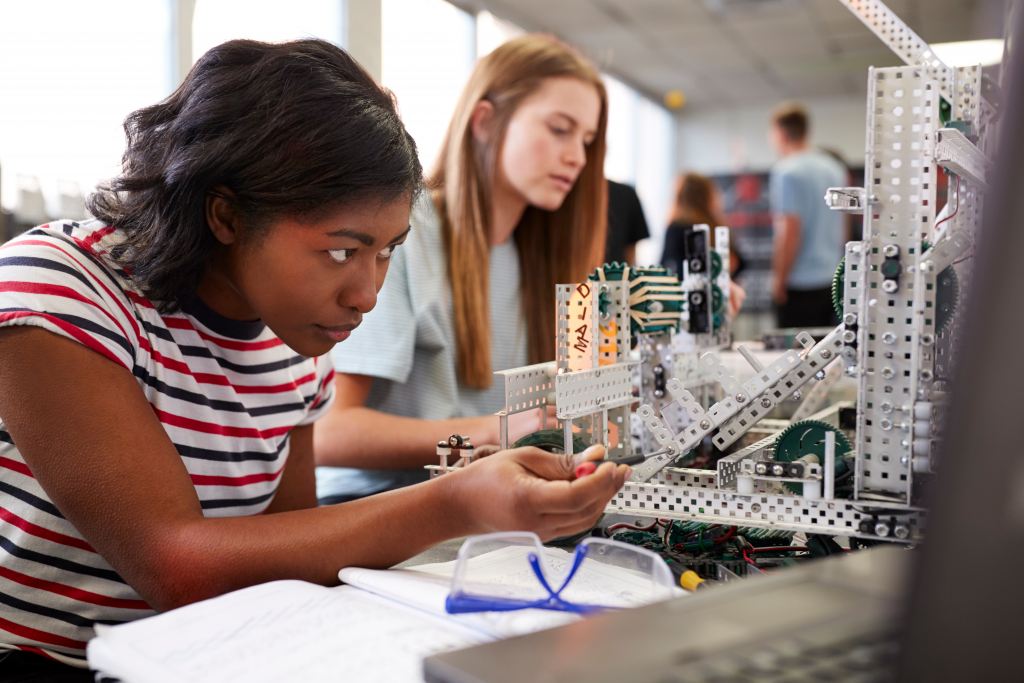Families preparing for the college admissions process hear a lot about the ROI of a college degree. Which school gives you the most return on your investment? Which major will pay off the most immediately after graduation and the years after? What many families forget to consider, however, is why college matters outside of the measurable metrics. While earning more income after graduation is one major reason to attend college, students also want to further explore their interests, discover more about themselves, and enhance their lives.
It’s no secret that a college education, in the end, pays off. According to a 2021 study by the Georgetown University Center on Education and the Workforce, bachelor’s degree holders earn 75% more than those with only a high school education — a lifetime median salary of $2.8 million compared to the $1.6 million earned by workers with no postsecondary education.
That said, college isn’t cheap, and many students have to take out loans in order to finance their higher education. According to recent studies, students graduate with an average debt of almost $30,000.
Increasingly, families consider the financial ROI of a college education due to the rising costs of college, student loan debt, and the necessity of a college degree in a competitive job market. This has prompted even college rankings lists to take ROI into consideration when evaluating schools for their publications. Payscale even does college rankings based entirely on ROI. Nonetheless, it is important to also consider the personal and intellectual ROI of a college education.
Higher Education Expands Critical Thinking and Creates More Informed Citizens
One of the most prevalent criticisms about higher education is the availability of “useless” majors like liberal arts and the humanities. Because these majors are not STEM, business, or a direct trade, many will count them out completely because they’re “not worth it.” No matter what degree students pursue, they will be required to take courses in a variety of subjects, and many of those will require them to think critically, participate in constructive conversations, communicate effectively, and exercise problem solving — all things that employers are looking for.
These skills aren’t just important in order to secure a job; they can also serve students well past graduation. Critical thinking is important in order to examine problems and solutions in the real world. How should I approach conflict with my boss, coworkers, or a client? Is this product I’m going to buy really what it advertises itself to be? Is this source of information accurate? How do I know? Higher education fosters the type of thinking that people need in order to succeed not just at work but also in life.
All of this leads to more informed citizens. College-educated adults are more likely to volunteer, vote, and participate in initiatives to better their community. Higher education doesn’t just benefit the individual — it can help elevate the entire community.
Students Gain Independence and an Expanded Worldview
For many students, college is the first independent experience they will have. There’s no one getting them up every morning to make sure they get to class on time. There’s no one cooking all of their meals, doing their laundry, or cleaning their living space. They’re on their own, and they’re experiencing the real-world results of the decisions they make. They’re learning to be adults, how to take care of themselves, how to form and foster relationships, and how to resolve any conflict within those relationships.
Even if students don’t go away to college, they’re still taking on the responsibility of managing their education. They’re learning how to learn without the rigid schedule of high school, where everything is planned and laid out for them, and parents are called if they don’t show up. They’re learning to prioritize and advocate for themselves inside and outside of the classroom, because professors won’t be communicating with their parents. Whether it’s at a four-year institution, a two-year college, or just a few courses students are taking to find out what they want to do, higher education forces students to be independent and take responsibility for that independence.
It’s also often the first time they’re surrounded by a variety of other students from different backgrounds, experiences, interests, and opinions. They’re able to engage with those who are different from them, and use those experiences to shape their values and opinions.
Students Learn More About Who They Are
It’s tough to find an 18-year-old who is completely self-aware. Many students go into college knowing what they want to study or have a good idea of what they want to do after they graduate; however, there are just as many who have no idea who they are, what they like, and what they want to do. While no one should go to college unless they’re ready, it is an opportunity to explore all those things they don’t have the answers to while they lay the groundwork for selecting a path of study.
Exposure to a variety of students, professors, activities, and courses of study allows students to dabble in a few different areas until they find what they really love. It’s also the time students start to evaluate and form a value set that’s not influenced by family or friends. And while all of this is going on they’re also building the skills mentioned previously — critical thinking, problem solving, and independence. Higher education offers students the opportunity to learn who they are and provides the resources to allow them to grow into that person.
When deciding whether or not to go to college, many students and parents will weigh the financial aspects of higher education — how much it costs and how it will pay off in the end. But it’s also necessary to evaluate what students get out of it that isn’t a diploma or a job.
Need help evaluating your college options? Not sure if college is right for you? Our team of expert counselors can help. Contact us today for more information on our educational consulting services for students of all ages.




